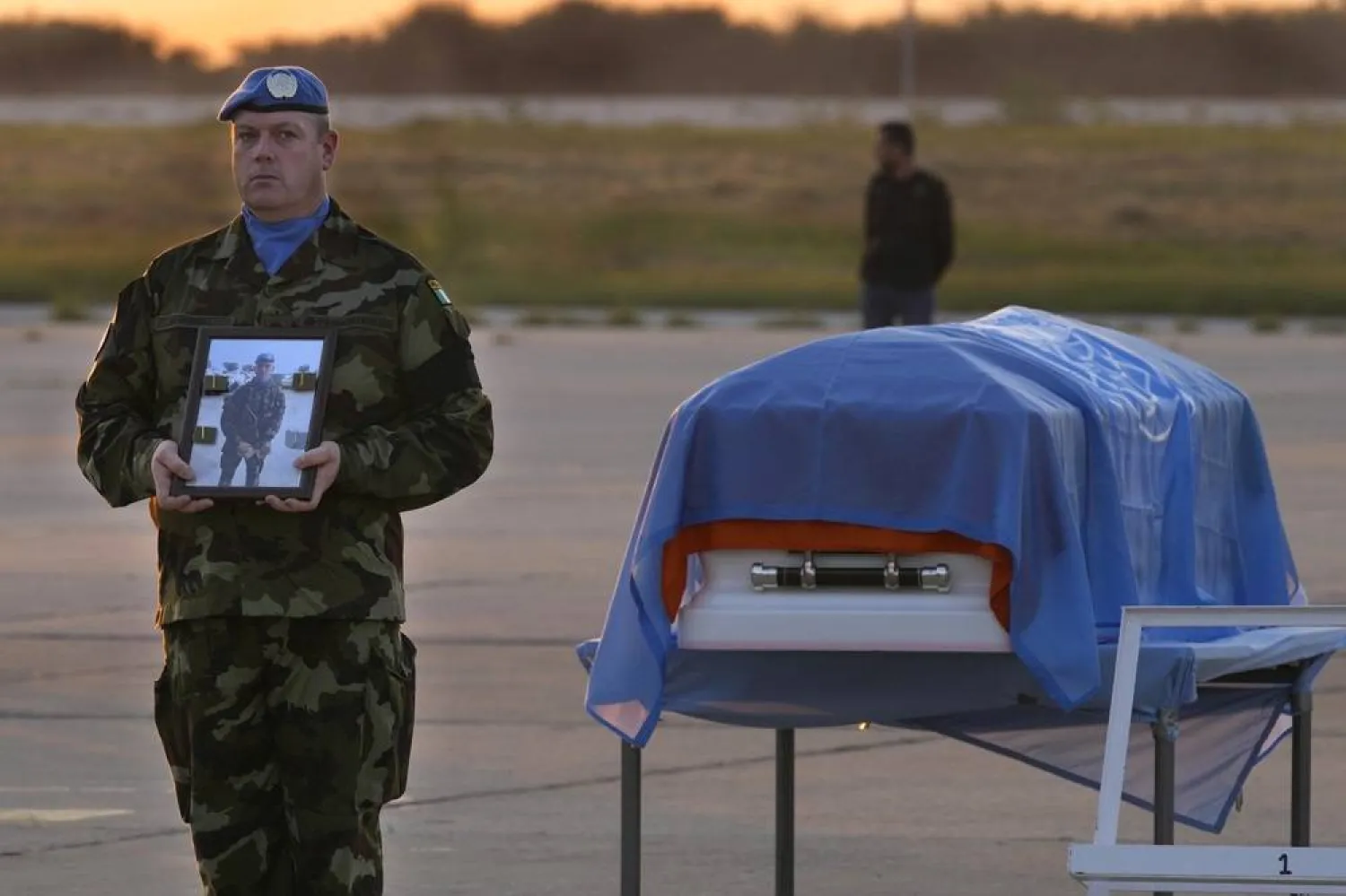Lebanon's military tribunal released a man accused of killing an Irish United Nations peacekeeper almost a year ago on bail, security and judicial officials said Wednesday.
The development comes as UNIFIL, the UN's peacekeeping mission in Lebanon, monitors ongoing clashes along the border between Hezbollah militants and Israeli troops.
Lebanon’s military tribunal in June charged Mohamad Ayyad and four others with the killing of Pvt. Seán Rooney, 24, of Newtown Cunningham, Ireland, following a half-year probe. Rooney was killed on Dec. 14, 2022. Ayyad was detained in December 2022.
The four others facing charges — Ali Khalifeh, Ali Salman, Hussein Salman, and Mustafa Salman — remain at large. All five are allegedly linked with Hezbollah. Hezbollah has repeatedly denied any role in the killing. Hezbollah representatives did not respond to requests for comment Wednesday.
UNIFIL spokesperson Andrea Tenenti said he was aware of reports about Ayyad’s release due to his “deteriorating health” and that UNIFIL is “working to confirm this information with the military court.”
“The Government of Lebanon has on several occasions stated its commitment to bring the perpetrators to justice,” Tenenti told The Associated Press. Last June, Tenenti said the indictment was an “important step towards justice.”
“We continue to urge that all perpetrators be held accountable, and for justice for Private Rooney and his family,” he said.
Two Lebanese officials confirmed that Ayyad was released on bail, which one of them said was in an amount of 1.2 billion Lebanese pounds (approximately $13,377), due to unspecified health concerns. The official said the trial is still ongoing and that Ayyad would go to jail should he be convicted and sentenced.
Both officials spoke to the AP on condition of anonymity in line with regulations.
On the fatal night, Rooney and several other Irish soldiers from UNIFIL were on their way from their base in southern Lebanon to the Beirut airport. Two UN vehicles apparently took a detour through Al-Aqbiya, which is not part of the area under the peacekeepers’ mandate.
Initial reports said angry residents confronted the peacekeepers, but the indictment concluded that the shooting was a targeted attack. The UN peacekeeper vehicle reportedly took a wrong turn and was surrounded by vehicles and armed men as they tried to make their way back to the main road.
The Lebanese Army on Dec. 27 arrested a suspect but did not disclose their name.
The Irish military did not immediately comment on the development.
UNIFIL was created to oversee the withdrawal of Israeli troops from southern Lebanon after Israel’s 1978 invasion. The UN expanded its mission following the 2006 war between Israel and the Iran-backed Hezbollah, allowing peacekeepers to deploy along the Israeli border to help the Lebanese military extend its authority into the country’s south for the first time in decades.
Hezbollah supporters in Lebanon frequently accuse the UN mission of collusion with Israel, while Israel has accused the peacekeepers of turning a blind eye to Hezbollah’s military activities in southern Lebanon.









